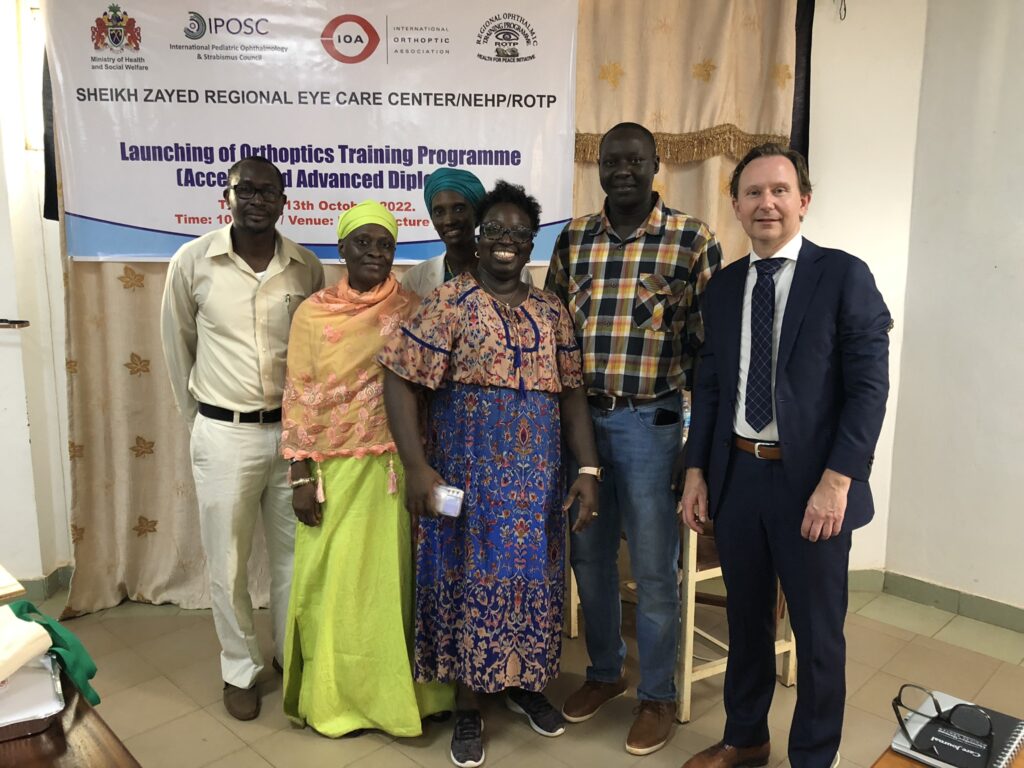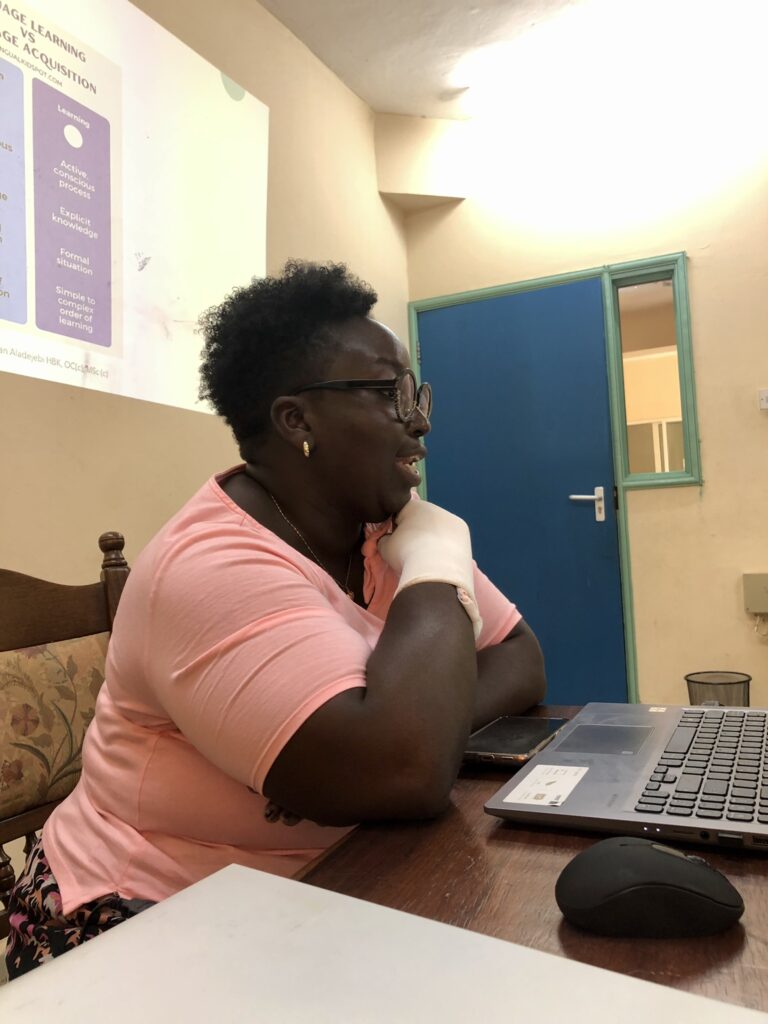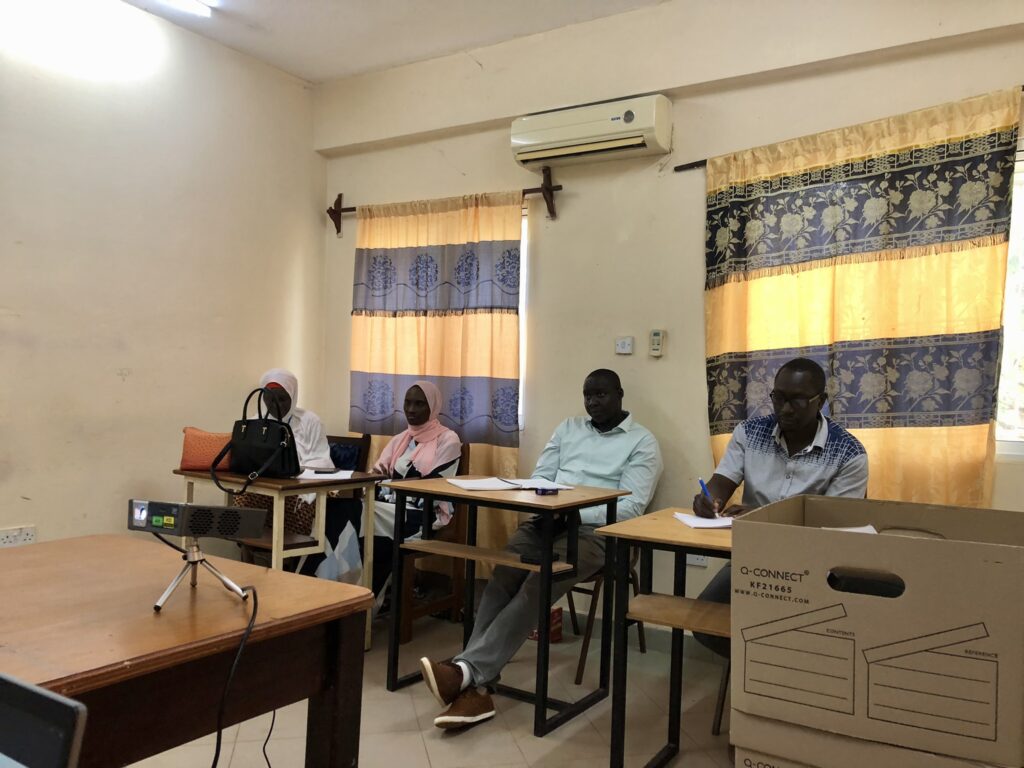For the academic year 2022/2023 and 2023-2024, 9 volunteers selected by the IOA will teach throughout each program year and educate 3 Sheikh Zayed staff members to become orthoptists/instructors. These orthoptic instructors will eventually train others from Gambia to become orthoptists in addition to educating those from neighboring countries including Senegal, Guinea Bissau, Sierra Leone, Liberia, Guinea Conakry, Burkina Faso, Chad, Togo, Cameroon, Zambia, and Tanzania. The first volunteer is Canadian orthoptist Lillian Aladejebi. During the symposium IOA president Jan Roelof Polling spoke about the profession, Lillian Aladejebi introduced the IPET Orthoptic Program, while Dr Jeff Young and Professor Trina Young from Vermont talked about Vision Screening in Gambia and World Causes of Low Vision. Attending the symposium were members of the National Health Service, the National Eye Care Programme (NECP), the Regional Ophthalmic, the Sheikh Zayed Regional Eye Care Centre and the Gambia Organization of the Visually Impaired (GOVI).
Gambia was selected by IPET to receive an orthoptic training program because of its great need. As the most densely populated country in Africa with a population of close to 2.7 million its ophthalmic needs are provided by only two full time ophthalmologists (a general ophthalmologist and a glaucoma specialist). The population of Gambia is young with 3 out of 5 being younger than 25 years. The demand for pediatric ophthalmology and orthoptic care is high and orthoptists will improve eye healthcare for the pediatric population, reduce the prevalence of preventable blindness and improve the quality of life for children. Additionally, the Sheikh Zayed Regional Eye Care Centre is a leader in education with its strong Regional Ophthalmic Training Program (ROTP) that has a proven record for educating ophthalmic nurse, ophthalmic surgical nurses, and optometrists.
Eliue Kipchoge, the Kenyan Marathon world record holder, once said, “The best time to plant a tree was 25 years ago. The second-best time to plant a tree is today.” IPOSC, IOA and Gambia encourage all Sub-Saharan African governments to seize the opportunity and renew their commitments to enhance the access to eye care through orthoptic services and to meet the needs of the eye health of the young African population. Eye health impacts education, employment, quality of life, poverty and so many other sustainable development goals.




